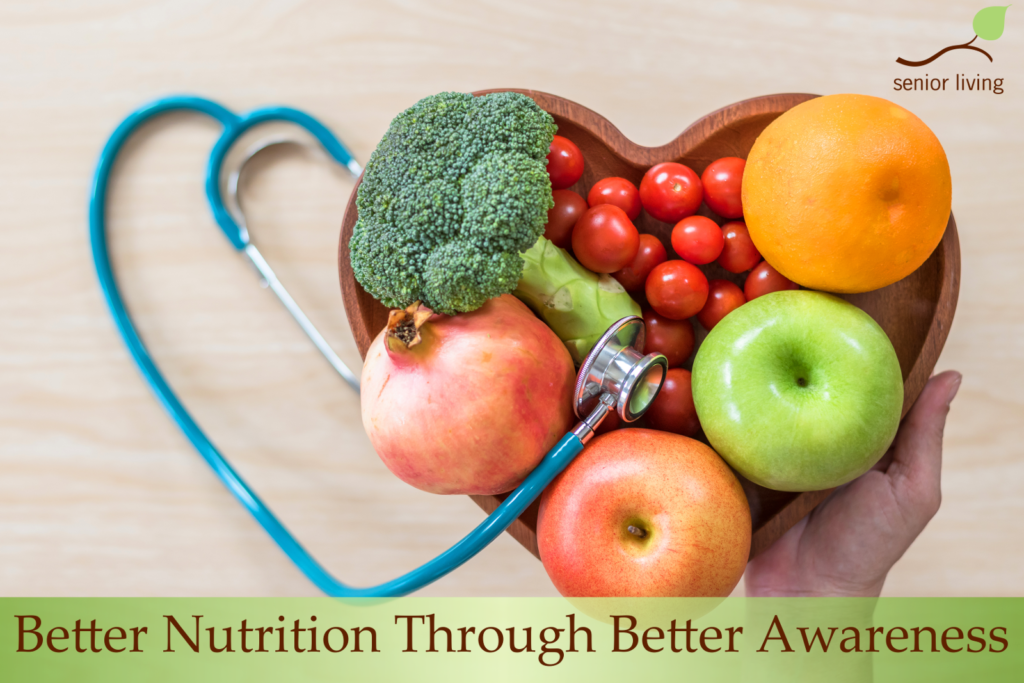In addition to causing a few extra wrinkles and unexpected aches and pains, getting older also impacts metabolism and the body’s ability to absorb nutrients. Because the way the body processes food changes as we age, nutrition becomes vitally important. For older adults, eating the right foods can not only improve health, but also protect against preventable diseases and even enhance quality of life. As with most health-related issues, the first step towards developing better nutrition is awareness. That’s why events like the annual National Nutrition Month are so important.
Each March, National Nutrition Month kicks off with the intention of bringing attention to “the importance of making informed food choices and developing sound eating and physical activity habits.” Initiated in 1973 as National Nutrition Week by the Academy of Nutrition and Dieticians, the movement evolved into a month-long observance in 1980.
This year, National Nutrition Month’s slogan is “Go Further with Food,” with the idea that “learning how to manage food resources at home will help you ‘Go Further with Food,’ while saving both nutrients and money.” To aid in that effort, the National Nutrition Month website includes articles, recipes, videos, and a whole host of educational resources with the goal of promoting healthier eating habits and a more active lifestyle. Additional information, activities, and opportunities to participate can also be found on the Academy’s social media channels through the hashtag #NationalNutritionMonth.

National Nutrition Month encourages consumers to “Go Further with Food” by using these key strategies:
- Regularly include a variety of healthful foods from all of the food groups in your diet.
- Consider the foods you have on hand before buying more at the store.
- Buy only the amount that can be eaten or frozen within a few days and plan ways to use leftovers later in the week.
- Be mindful of portion sizes.
- Find activities that you enjoy and aim to be physically active most days of the week.
- Realize the benefits of healthy eating by consulting with a registered dietitian nutritionist. RDNs can provide sound, easy-to-follow personalized nutrition advice to meet your lifestyle, preferences, and health-related needs.
Changing Bodies, Changing Needs
While eating well is vital at any age, for seniors, adequate nutrition is critical to vitality, health, and overall quality of life. Seniors face a unique set of challenges when it comes to maintaining a well-rounded diet, including perceptual changes in hearing, smell, and taste, all of which can influence appetite. Physiological changes like decreased kidney function, reduced metabolic rate, and fluctuations in the nervous system are another reason older adults need to watch what they eat. Finally, physical ailments like dental problems, gastrointestinal discomfort, and general malaise can all adversely affect a senior’s ability to eat the right foods in the right amounts.
National Nutrition Month is a fantastic opportunity for senior living providers and caregivers to educate residents and their families about all the ways they can improve eating habits and maintain proper nutrition. Senior living providers interested in participating in National Nutrition Month should check out the organization’s website for more information.
Contact us to learn more about ageless living!




